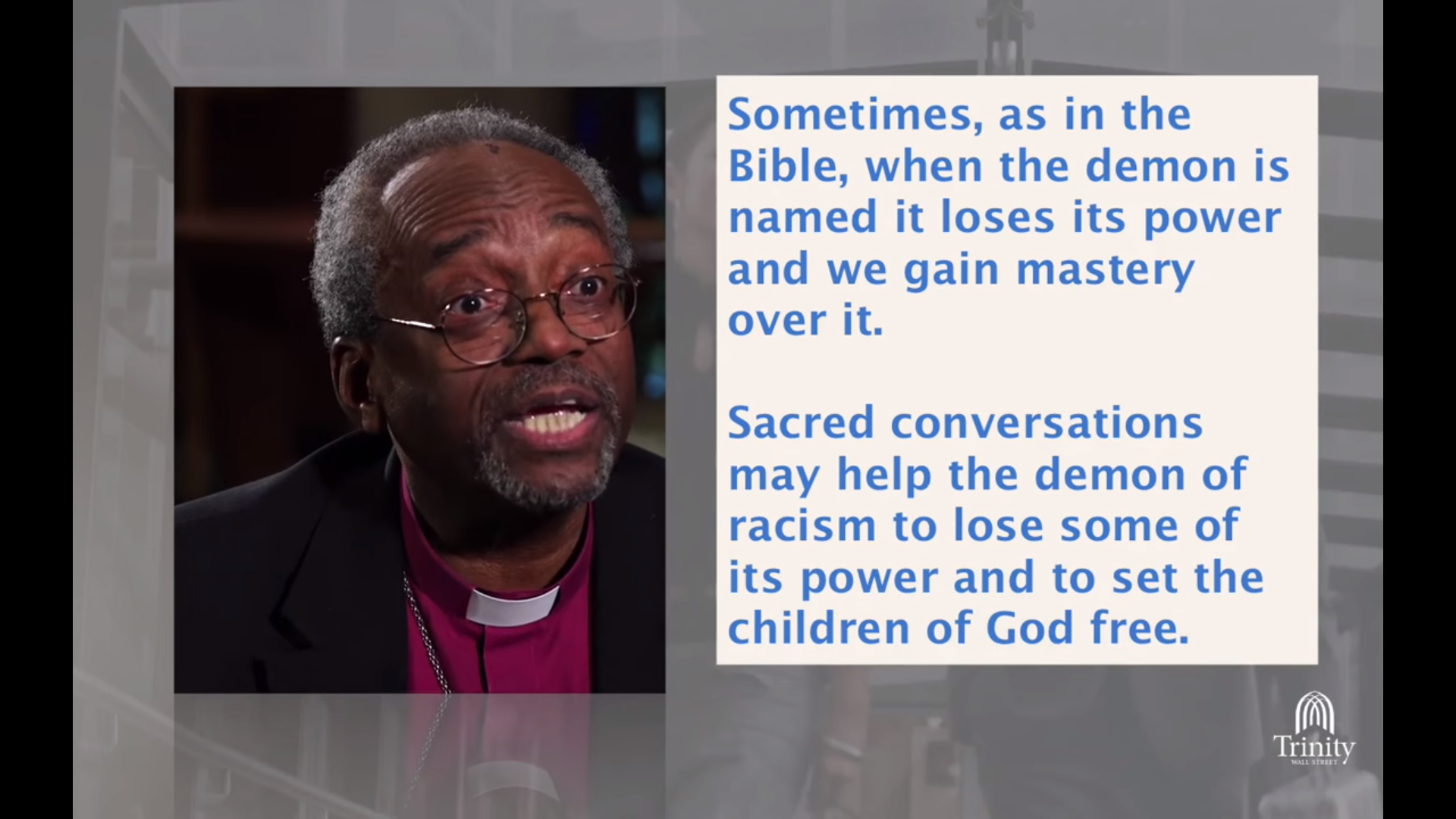
The first class in our free Lenten series, Spirituality and Racial Justice with Michael Curry For Individuals and For Groups, has already produced some strong and intriguing discussion. Here are some samples of your ideas, for which we thank you. If you haven’t taken the class yet, this is a conversation you don’t want to miss.
On developing authentic reconciliation between races:
“Authentic” is the key word here. By “authentic,” I believe he means soulful, prayerful, scary, honest dialogues between people and between groups in an attempt to understand our relationship to one another laid down for us through the teachings of Jesus. Authentic does not mean giving lip service to platitudes. It does mean, to me, tolerating feeling very uncomfortable, angry and frustrated but also, at the same time, loving. Very hard!
On engaging in difficult conversations about race:
While I have found these discussions can happen in many contexts, my experience has been that, to be positively productive, the atmosphere of safety, relationship and openness is critical. I have also found it necessary for me to see these conversations as collaborations in mutuality, where my own deep listening is vital.
On facing our history with courage:
The example that resonates with me is the vast lexicon of derogatory words built up over time. I was influenced as an English postwar child by an aunt who often explained the world by claiming that “Wogs begin at Calais.” I am mortified and miserable just typing this. Kind, generous speech and accurate word choice is vital if we are to move towards justice and respect for all.
On ways in which congregations can confront racial injustice:
I live in a white, upper middle class community. With this in mind, welcoming people who are not white and with limited financial resources is unthinkable. For many the idea of bringing Anglo and Latino/Hispanics together is not practical. The common answer is that both communities are very different. Well, our church has challenged this preconception and with this is challenging the status quo. We have met a lot of resistance from both communities and from the secular and religious structures. We know that everyone that comes to our church is a parishioner. For many, the tendency is to think that we are two different congregations. Our discussions and efforts are offering a lot of fruits. We call ourselves and we are a bilingual and multiethnic congregation.
Thank you for your contributions to this vibrant and exciting class. Please keep your insights coming. If you haven’t yet taken this class, please join us! Offer your ideas on confronting racial injustice.
For a preview of the class, please click below.

